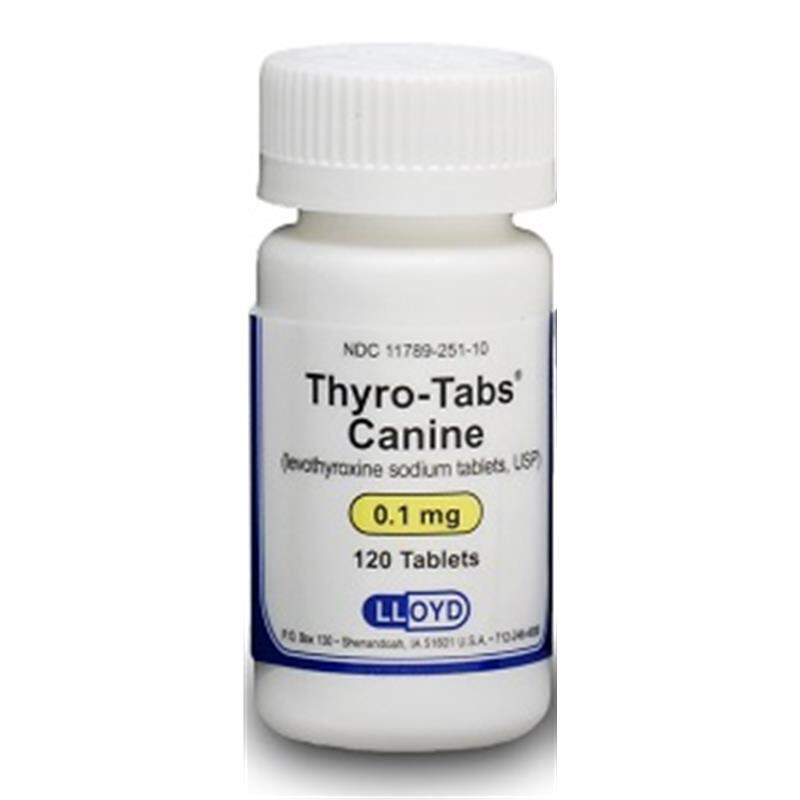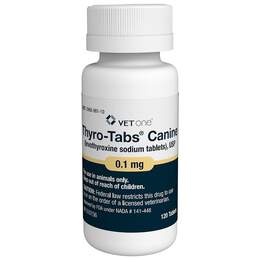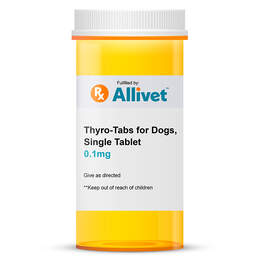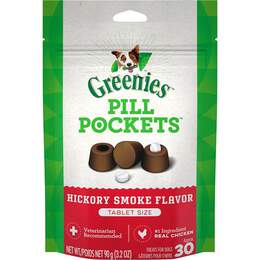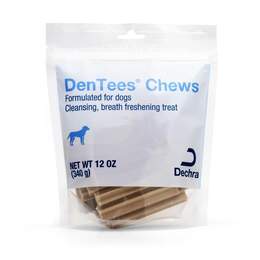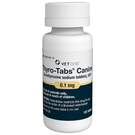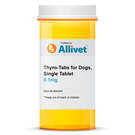

1 of 1
Click on image to open expanded view
Item No.
50574
Thyro-Tabs Canine, 120 ct Rx
Strength:
AutoShip & Save 20%
- Save on your Autoship
- Hassle-free: Easily Skip or Change Shipment Dates.
- Commitment-free: Cancel anytime
- Free Shipping.
With AutoShip, we remember so you don’t have to! Learn more
Thyro-Tabs Canine, 120 ct Description
For dogs suffering from any type of inadequate thyroid hormone production, Thyro-Tabs Canine can provide therapy for thyroid replacement. Thyro-Tabs Canine, also known as Levothyroxine Sodium Tablets, USP, is the highest quality product on the market. The product provides T4, or levothyroxine as a layer or physiologic deiodination for T3.
What is Thyro-Tabs Canine, 120 ct?
For use in dogs for correction of conditions associated with low circulating thyroid hormone (hypothyroidism).
Which animals/pets is Thyro-Tabs Canine, 120 ct for?
Thyro-Tabs Canine are intended for the treatment of hypothyroidism in dogs only.
Thyro-Tabs Canine, 120 ct uses
- .
- Thyro-Tabs Canine meets all standards for the USP and FDA.
- The USP minimum of over 95% potency per dose is guaranteed.
- In doses of 28 months, Thyro-Tabs Canine delivers dosage stability.
What does Thyro-Tabs Canine, 120 ct do?
The cause of hypothyroidism is deficiency in T3 (liothyronine) and T4 (levothyroxine) which leads to general metabolic disease. Complete physiologic replacement of thyroid can be achieved by solely administering levothyroxine sodium. This medication provides T4, or levothyroxine, as a layer for physiologic deiodination to T3, or liothyronine.
Thyro-Tabs Canine, 120 ct side effects
Stop administering Thyro-Tabs Canine and seek emergency care if your dog experiences:
Thyro-Tabs Canine can continue to be administered if your dog experiences:
- Trouble breathing
- Allergy (swollen tongue, face or lips)
- Hives
- Throat closing
- Changes in weight or appetite
- Fever
- Issues with sleeping
- Changes in personality
Thyro-Tabs Canine can continue to be administered if your dog experiences:
- Rash or itching
- Diarrhea
- Vomiting or nausea
- Dryness in the mouth
- Decreased appetite
- Cough
- Dizziness
- Drowsiness
Thyro-Tabs Canine, 120 ct ingredients
Levothyroxine Sodium
Thyro-Tabs Canine, 120 ct overdose: What to do?
Contact your closest emergency pet hospital.
What to know before using Thyro-Tabs Canine, 120 ct
Take precautions to avoid an overdose of this medication, which could cause:
- Changes in personality
- Decreased tolerance for heat
- Hyperactivity
- Polyphagia
- Polyuria
- Polydipsia
How is Thyro-Tabs Canine, 120 ct sold?
Sold in bottles of 120 tablets in strengths of 0.1 mg, 0.2 mg, 0.3 mg, 0.4 mg, 0.5 mg, 0.6 mg, 0.7 mg, and 0.8 mg, and 1.0 mg
Manufacturer
Lloyd Laboratories Inc
Overview
The initial recommended daily dose is 0.1 to 0.2 mg/10 pounds (4.5 kg) body weight in single or divided doses. Dosage is then adjusted by monitoring the T-4 blood levels of the dog every four weeks until an adequate maintenance dose is established. The usual daily maintenance dose is 0.1 mg/10 lb (4.5 kg). A maximum of 0.8 to 1.0 mg total daily dose will be sufficient in most dogs over 80 pounds in body weight. Thyro-Tabs may be administered orally or placed in the food.
Main Ingredients
Each Thyro-Tab canine provides synthetic crystalline Levothyroxine Sodium (L-thyroxine).
Find out if your dog is suffering from hypothyroidism. Click hypothyroidism in dogs.




